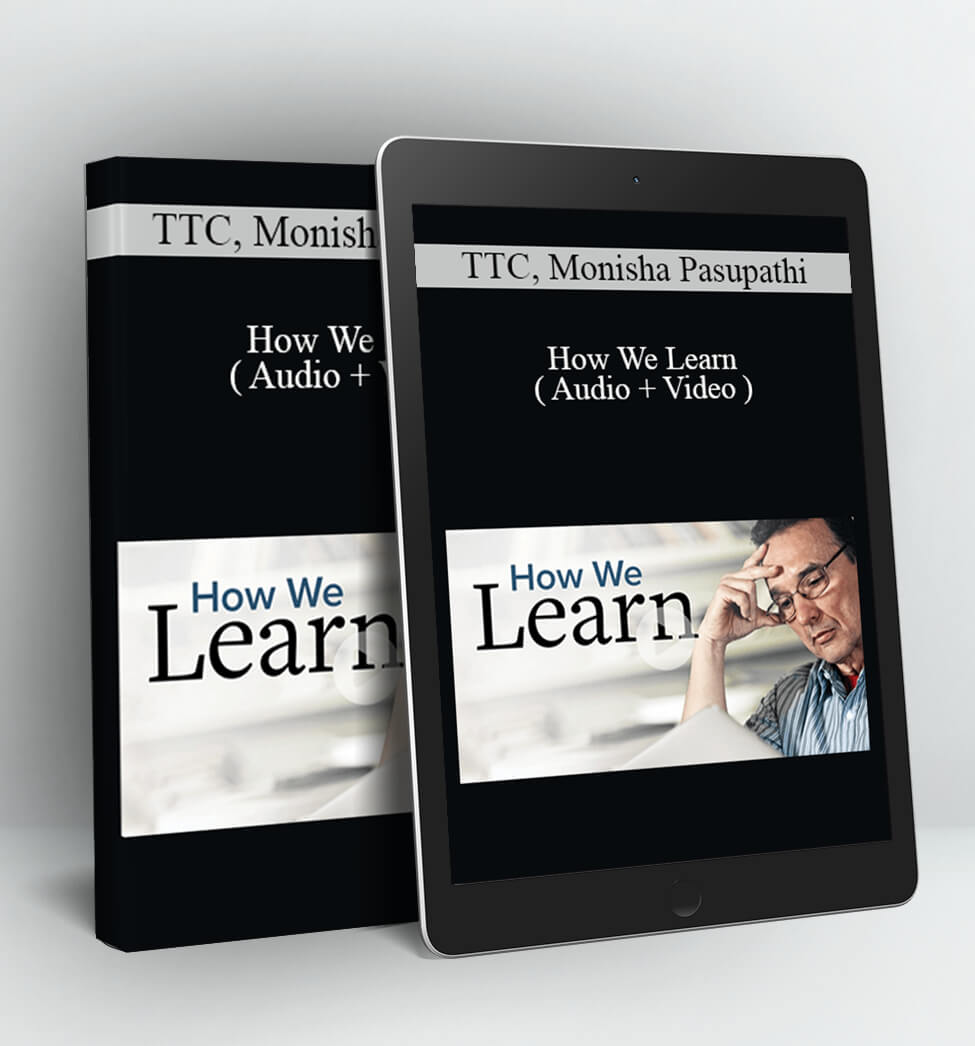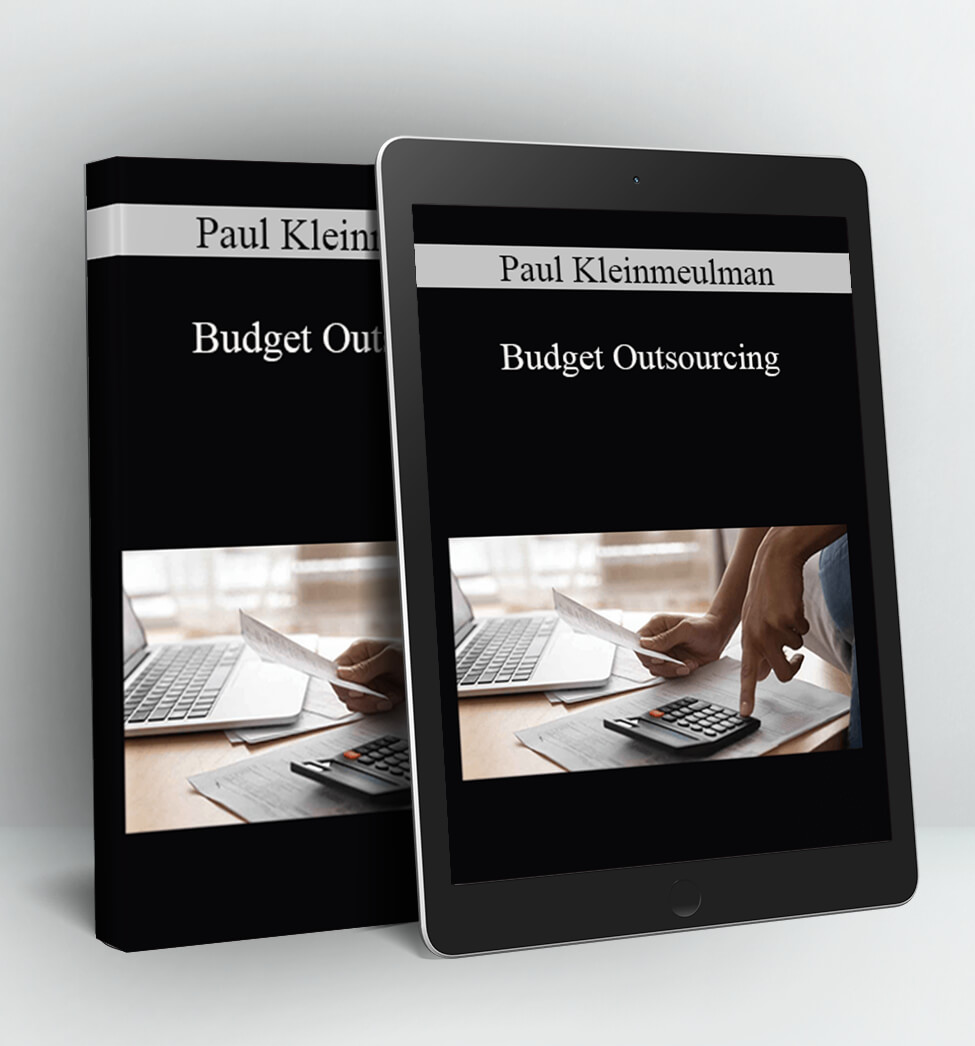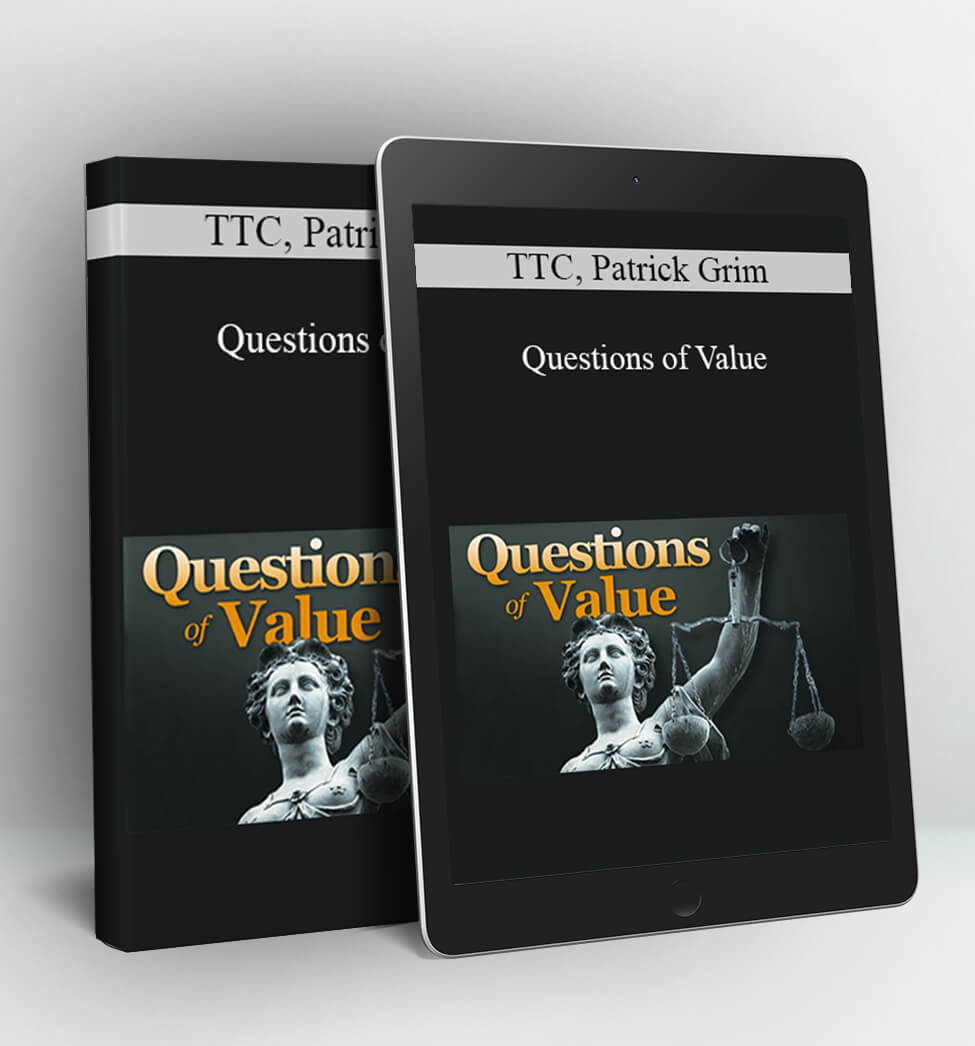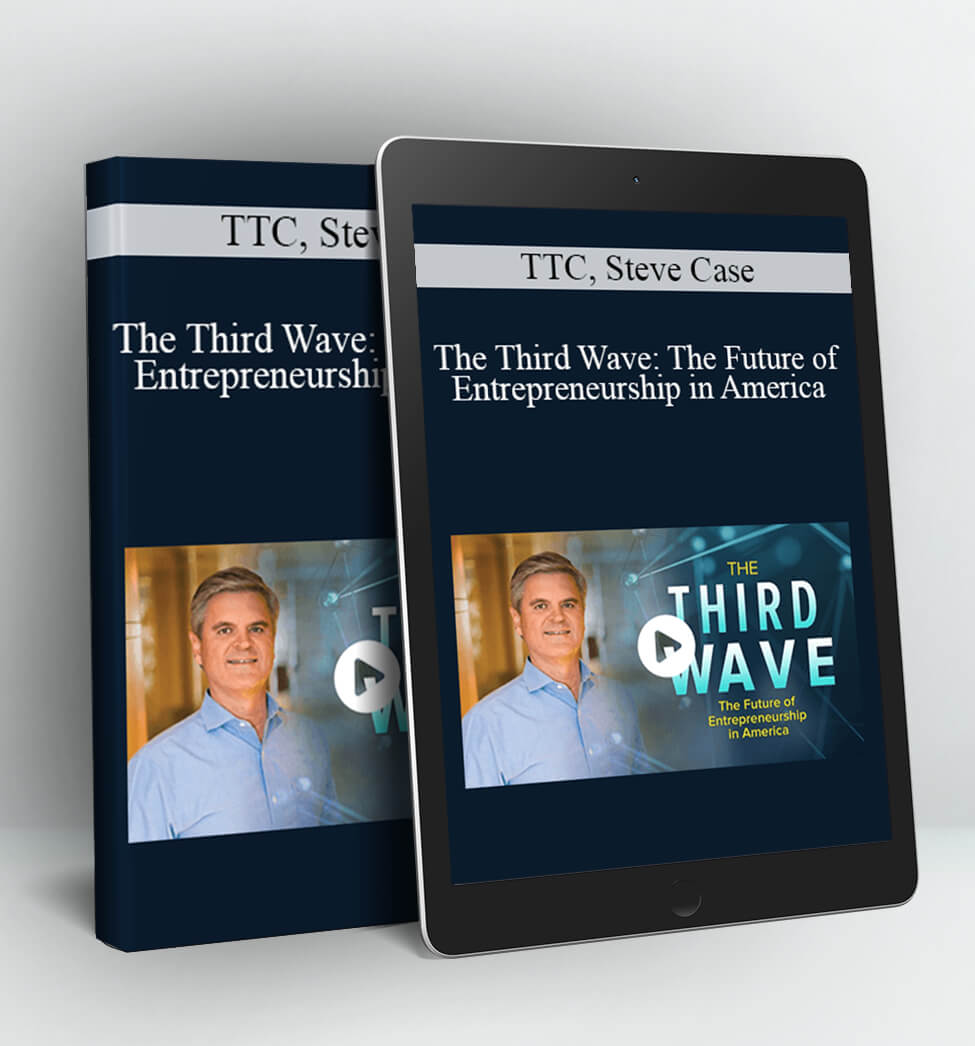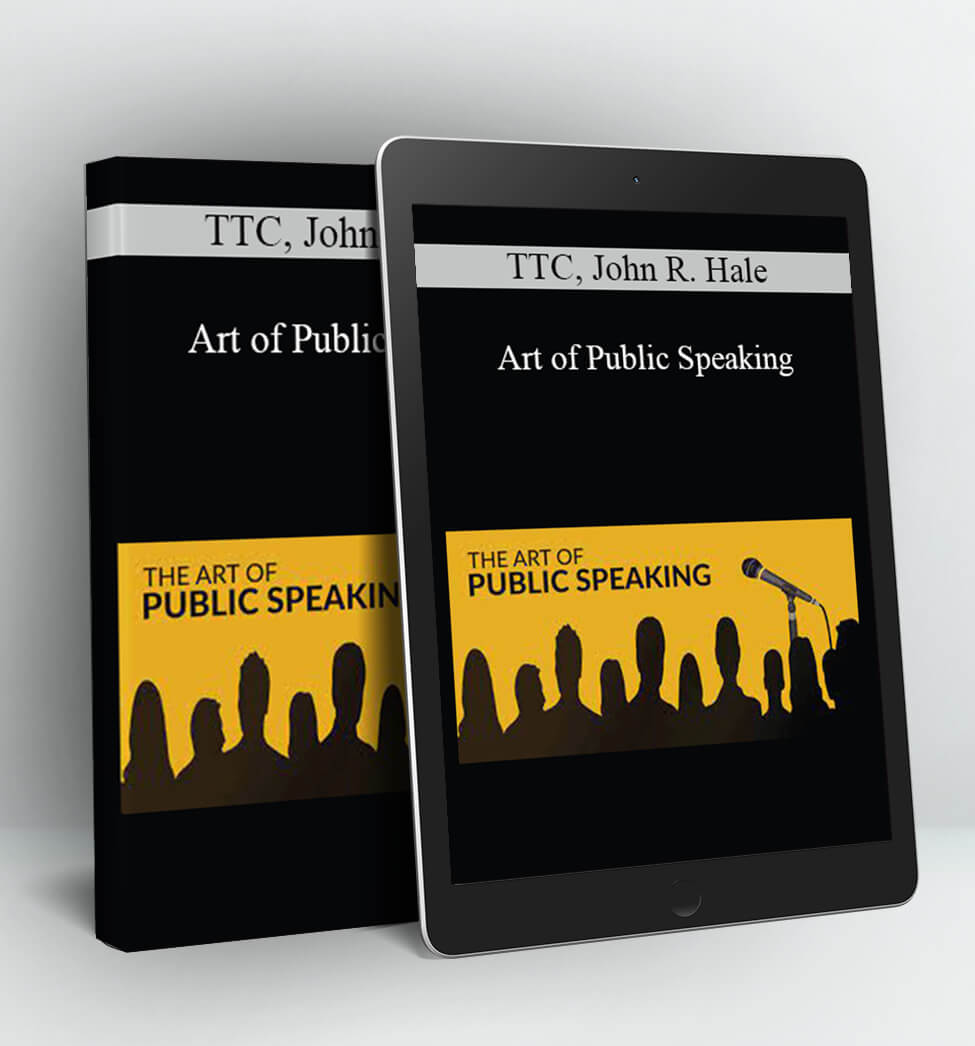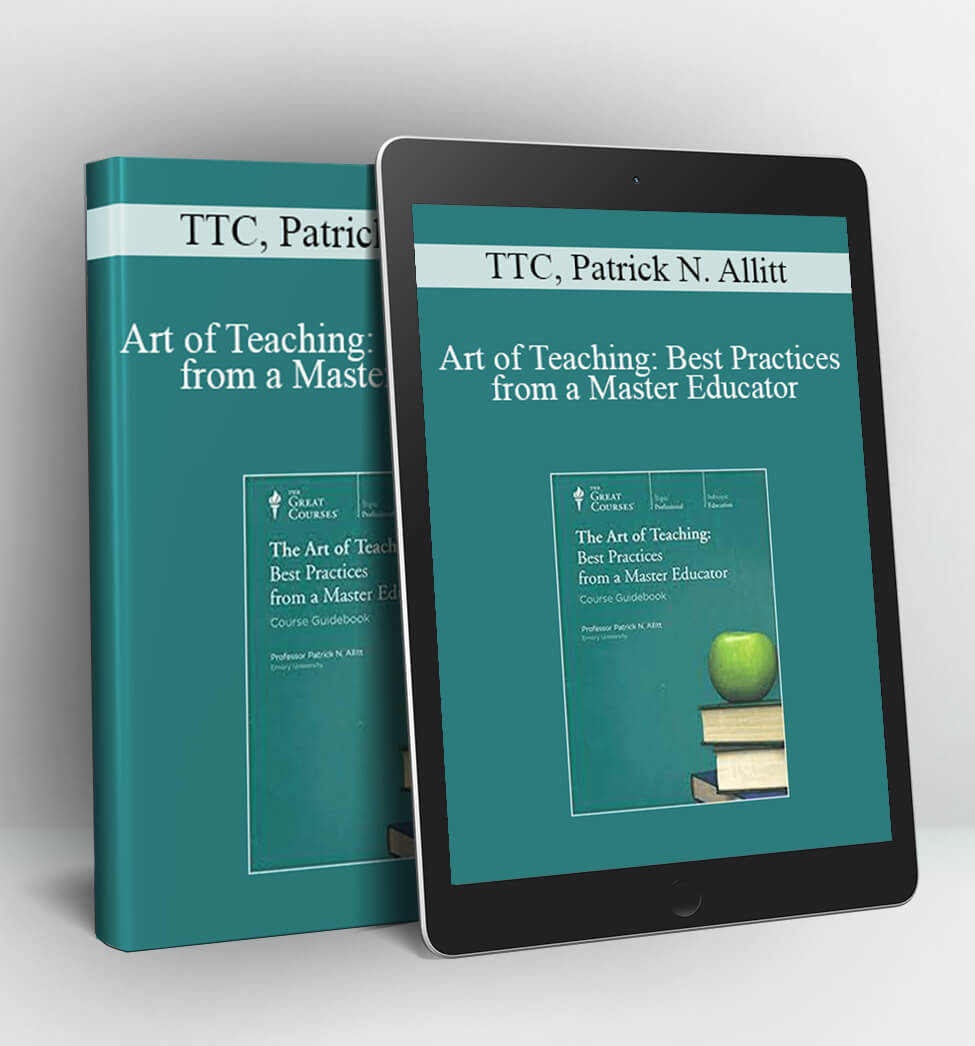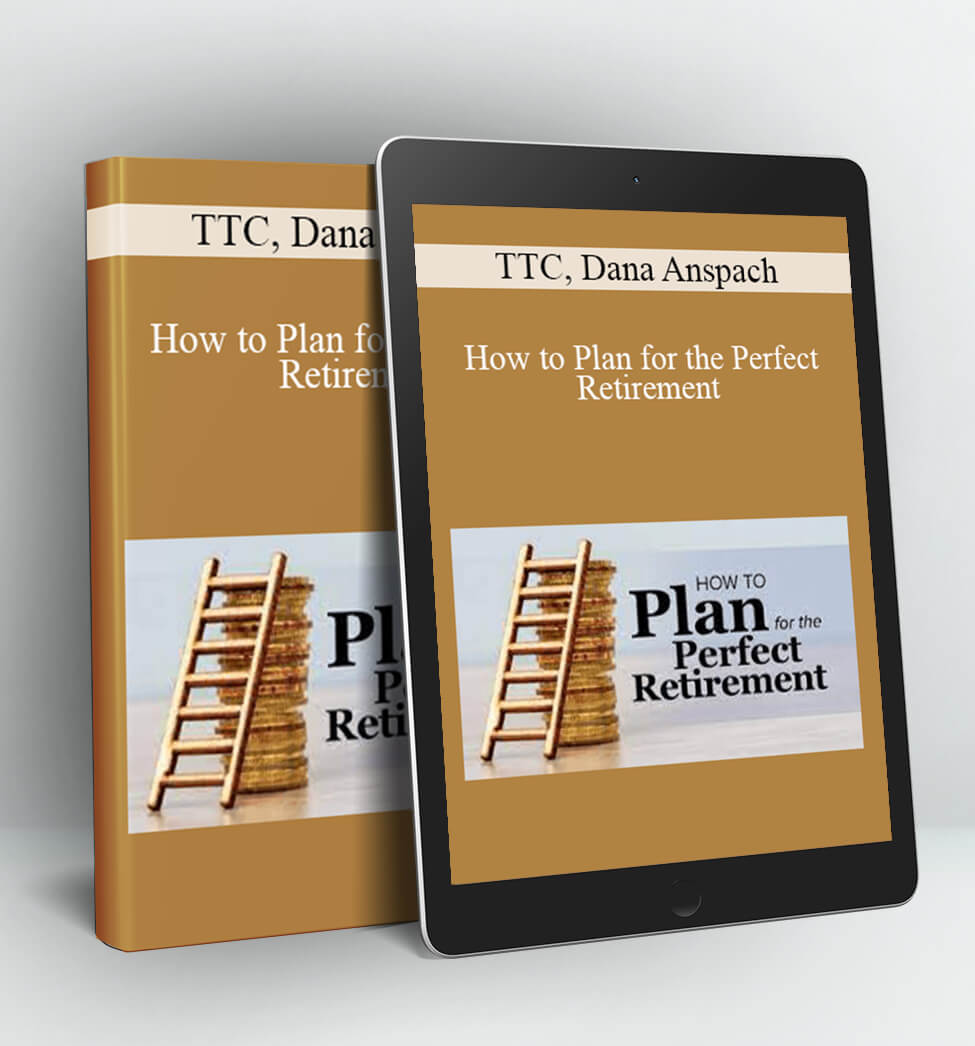How We Learn ( Audio + Video ) – TTC, Monisha Pasupathi
How We Learn
Course Overview
Learning is a lifelong adventure. It starts in your mother’s womb, accelerates to high speed in infancy and childhood, and continues through every age, whether you’re actively engaged in mastering a new skill, intuitively discovering an unfamiliar place, or just sleeping, which is fundamental to helping you consolidate and hold on to what you’ve learned. You are truly born to learn around the clock.
But few of us know how we learn, which is the key to learning and studying more effectively. For example, you may be surprised by the following:
- People tend to misjudge what they have learned well, what they don’t yet know, and what they do and do not need to practice.
- Moments of confusion, frustration, uncertainty, and lack of confidence are part of the process of acquiring new skills and new knowledge.
- Humans and animals explore their worlds for the sake of learning, regardless of rewards and punishment connected with success.
- You can teach an old dog new tricks. In fact, older learners have the benefit of prior knowledge and critical skills—two advantages in learning.
Shedding light on what’s going on when we learn and dispelling common myths about the subject, How We Learn introduces you to this practical and accessible science in 24 half-hour lectures presented by Professor Monisha Pasupathi of the University of Utah, an award-winning psychology teacher and expert on how people of all ages learn.
A Course about You
Customers of The Great Courses are already devoted to lifelong learning and may be surprised at how complicated the process of learning is. We have a single word for it—learn—but it occurs in a fascinating variety of ways, which Professor Pasupathi recounts in detail. She describes a wide range of experiments that may strike a familiar chord as you recognize something about yourself or others:
- Scripts: We have trouble recalling specific events until we have first learned scripts for those events. Young children are prodigious learners of scripts, but so are first-time parents, college freshmen, foreign travelers, and new employees.
- Variable ratio reinforcement: Children whining for candy are usually refused, but the few occasions when parents give in encourage maximal display of the behavior. The same principle is behind the success of slot machines and other unpredictable rewards.
- Storytelling: Telling stories is fundamentally an act of learning about ourselves. The way we recount experiences, usually shortly after the event, has lasting effects on the way we remember those experiences and what we learn from them.
- Sleeper effect: Have you ever heard something from an unreliable source and later found yourself believing it? Over time, we tend to remember information but forget the source. Paradoxically, this effect is stronger when the source is less credible.
Dr. Pasupathi’s many examples cover the modern history of research on learning—from behaviorist theory in the early 20th century to the most recent debates about whether IQ can be separated from achievement, or whether a spectrum of different learning styles and multiple intelligences really exist.
What You Will Learn
You start by examining 10 myths about learning. These can get in the way of making the fullest use of the extraordinary capacity for learning and include widespread beliefs, such as that college-educated people already know how to maximize learning or that a person must be interested in a subject in order to learn it.
Professor Pasupathi then covers mistaken theories of learning, such as that lab animals and humans learn in the same way or that the brain is a tabula rasa, a blank slate that can absorb information without preparation. Babies might seem to be a counterexample, showing that you can learn from scratch. However, you examine what newborns must know at birth in order for them to learn so much, so quickly.
Next you explore in depth how humans master different tasks, from learning a native language or a second language, to becoming adept at a sport or a musical instrument, to learning a new city or a problem-solving strategy, to grasping the distinctive style of thinking required in mathematics and science. Then you look inside the learning process itself, where many factors come into play, including what is being learned and the context, along with the emotions, motivations, and goals of the learner. You close by considering individual differences. Some people seem to learn without effort. How do they do it?
Tips on Learning
Along the way, Professor Pasupathi offers frequent advice on how to excel in many different learning situations:
- Mastering material: Testing yourself is a very effective strategy for mastering difficult material. Try taking a blank sheet of paper and writing down everything you can recall about the subject. Then go back and review the material. Next, try another blank sheet of paper.
- Second-language learning: Becoming fluent in a second language in adulthood is difficult because your brain is tuned to your native language and misses important clues in the new language. To overcome this obstacle, immerse yourself among native speakers of the new language.
- Motivating a child: When trying to motivate a schoolchild to learn, avoid controlling language, create opportunities to give the child a sense of choice, and be careful about excessive praise and other forms of rewards, which can actually undermine learning.
- Maintaining a learning edge: Middle-aged and older adults can preserve their learning aptitude by exercising to maintain cardiovascular health, staying mentally active, and periodically trying a new challenge, such as learning to draw or studying new dance steps.
Adventures in Learning
Winner of prestigious teaching awards from her university’s chapter of Psi Chi, the National Honor Society in Psychology, Dr. Pasupathi brings today’s exciting field of learning research alive. Her descriptions of ongoing work in her field, in which she is a prominent participant, are vivid and insightful, allowing you to put yourself into a given experiment and ask, “How would I react under these circumstances? What does this tell me about my own approach to learning?”
By the time How We Learn ends, you will appreciate the incredible breadth of what we learn in our lifetimes, understand the commonality and diversity of human learning experiences, and come away with strategies for enhancing your own adventures in learning.
“Learning is a human birthright,” says Professor Pasupathi. “Everything about us is built for lifelong learning—from our unusually long childhood and our large prefrontal cortex to our interest in novelty and challenge.” And she finds reason for optimism about the future of humanity due to our almost miraculous capacity to learn.
Lectures
Lecture 01: Myths About Learning
Lecture 02: Why No Single Learning Theory Works
Lecture 03: Learning As Information Processing
Lecture 04: Creating Representations
Lecture 05: Categories, Rules, And scripts
Lecture 06: What Babies Know
Lecture 07: Learning Your Native Tongue
Lecture 08: Learning A Second Language
Lecture 09: Learning How To Move
Lecture 10: Learning Our Way Around
Lecture 11: Learning To Tell Stories
Lecture 12: Learning Approaches In Math And Science
Lecture 13: Learning As Theory Testing
Lecture 14: Integrating Different Domains Of Learning
Lecture 15: Cognitive Constraints On Learning
Lecture 16: Choosing Learning Strategies
Lecture 17: Source Knowledge And Learning
Lecture 18: The Role Of Emotion In Learning
Lecture 19: Cultivating A Desire To Learn
Lecture 20: Intelligence And Learning
Lecture 21: Are Learning styles Real?
Lecture 22: Different People, Different Interests
Lecture 23: Learning Across The Lifespan
Lecture 24: Making The Most Of How We Learn
Access Download How We Learn ( Audio + Video ) – TTC, Monisha Pasupathi right now!
Delivery Method:
After your purchase, you’ll get access to the downloads page. Here, you can download all the files associated with your order.
Downloads are available once your payment is confirmed, we’ll also send you a download notification email separate from any transaction notification emails you receive from Vinlearn.

